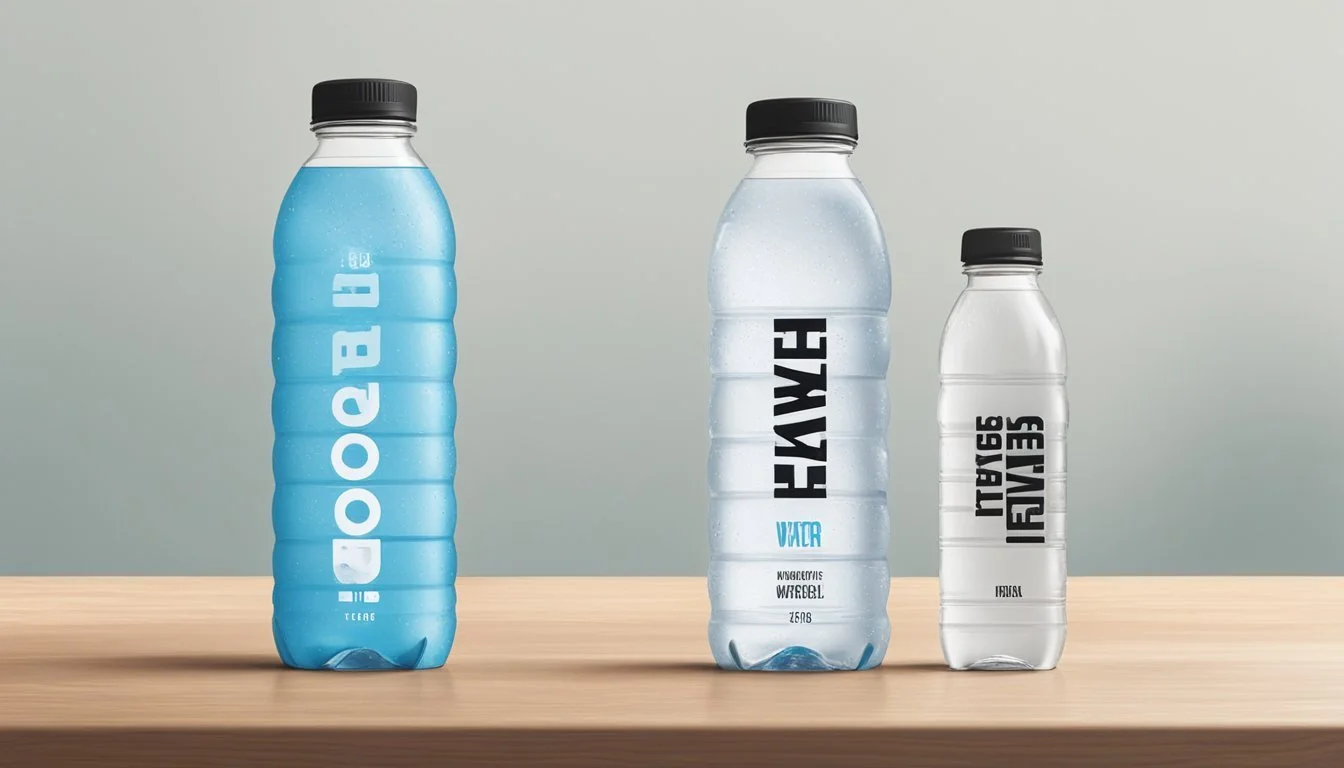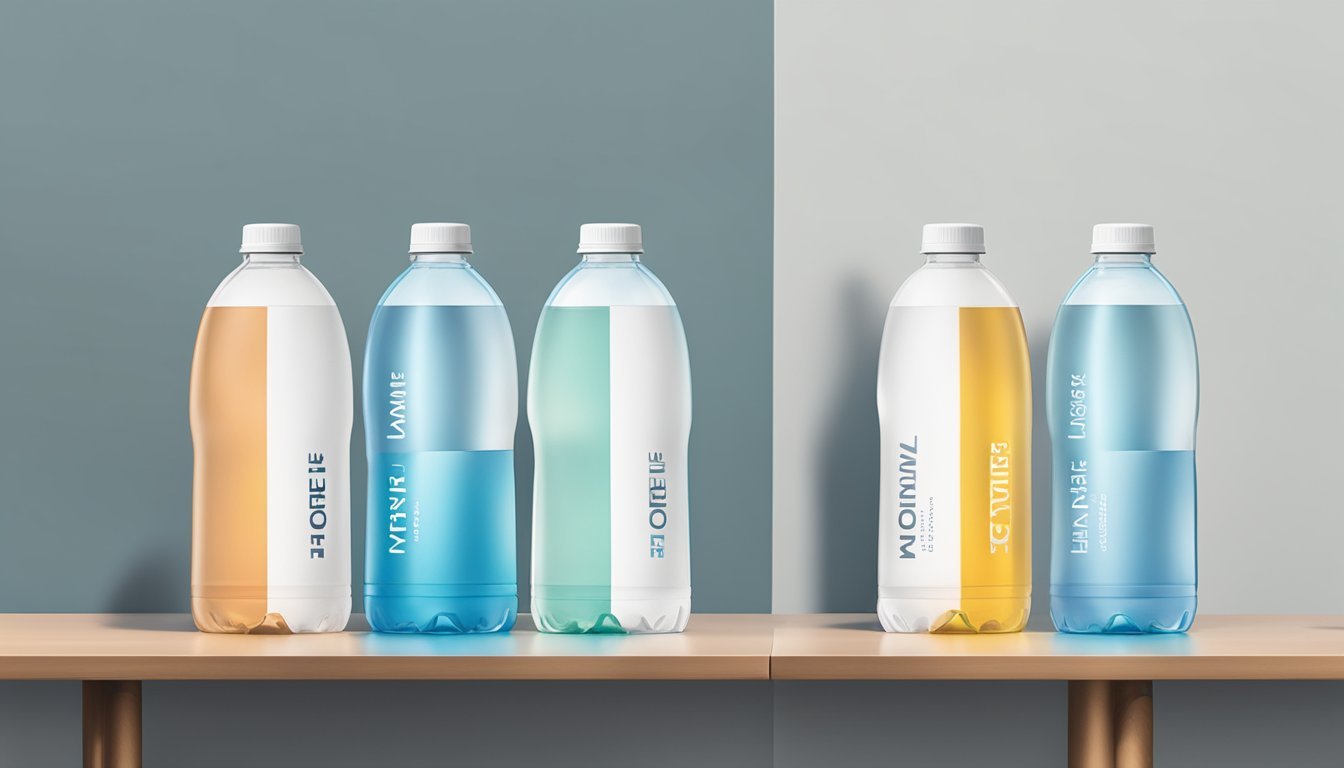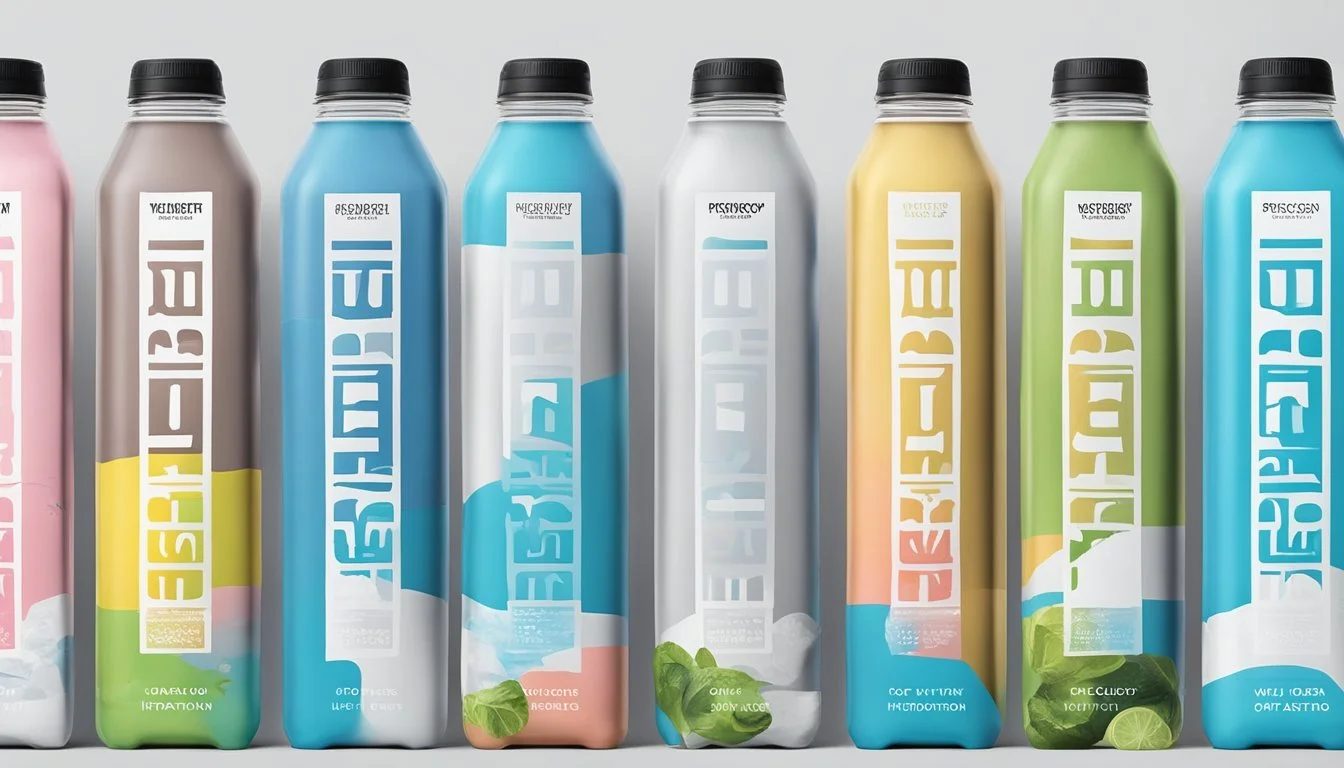Boxed Water vs. Core Hydration
A Comparative Analysis of Bottled Water Options
In the quest for hydration, consumers are often presented with an overwhelming array of options, each touting its own benefits and sustainable practices. Two brands that stand out in this crowded market are Boxed Water and Core Hydration. Boxed Water emphasizes its commitment to sustainability with paper-based packaging, an initiative started in 2009 with the aim to disrupt traditional plastic water bottles. Core Hydration offers a slightly different approach, marketing itself with purified water that is ultra-purified and balanced with electrolytes and minerals for taste.
The debate between Boxed Water and Core Hydration extends beyond the contents to encompass environmental impact, packaging innovation, and accessibility. Boxed Water suggests an advantage through its recyclable cartons, which may have a lower environmental footprint if recycling facilities are accessible. Core Hydration, while packaged in plastic, focuses on the purity and taste of its water, appealing to consumers who prioritize the health and quality aspects in their bottled water choice. The conversation around these brands is complex, factoring in the global push for sustainability against the individual's need for clean, accessible water.
Boxed Water vs. Core Hydration
In the realm of bottled water, consumers often ponder the merits between Boxed Water's sustainable packaging and Core Hydration's unique blend of electrolytes. This section delves into the specifics of each brand to inform the reader's choice.
Understanding Boxed Water
Boxed Water distinguishes itself with sustainability at the forefront of its brand ethos. Their cartons are 92% plant-based with a mixture of 74% paper, 1% aluminum, and 25% plastic to maintain waterproofing. The focus on sustainable materials and the option for carton recycling places Boxed Water as a notable alternative to the traditional plastic bottle. The design of their packaging also reflects a minimalist approach that underscores their environmental commitments.
Exploring Core Hydration
Core Hydration offers a bottled water product that emphasizes its optimal pH and the inclusion of electrolytes for taste. The plastic bottles used by Core Hydration are 100% recyclable and touted as BPA-free, catering to health-conscious consumers. The design of Core Hydration's bottles is engineered to provide a comfortable grip. This brand markets itself not just as drinking water, but as a beverage with unique properties for enhanced hydration.
Environmental Impact
The environmental impact of bottled water encompasses two critical areas: the sustainability of the packaging materials and the total carbon footprint each product generates.
Eco-Friendliness of Packaging
Boxed Water packaging primarily uses paper, a renewable resource. Their cartons are composed of 75% paper, 20% plastic, and 5% aluminum, and they are often touted as a more sustainable alternative to traditional plastic bottles. The paper used is from trees planted in sustainably managed forests. However, the mixed materials can complicate the recycling process, making it less straightforward than recycling single-material items.
Core Hydration bottles are made primarily from plastic, which is widely recognized for contributing to plastic pollution. However, the plastic used is 100% recyclable, and Core uses a plant-based plastic for some of their bottles, which is derived from renewable resources like sugarcane.
Bottle Type Material Used Recyclability Renewable Resources Boxed Water Paper, plastic, aluminum Depends on local facilities Yes (paper) Core Hydration Plastic (PET and plant-based) Widely recyclable Yes (plant-based plastic)
Carbon Footprint Comparison
Analyzing the carbon footprint means looking at the entire lifecycle of the product, from sourcing materials to production, distribution, and disposal – a process known as lifecycle assessment (LCA).
Boxed Water has claimed through studies they've conducted that their products have a lower carbon footprint compared to traditional plastic bottles, particularly in areas like ozone depletion and global warming potential. However, these claims should be viewed with caution until confirmed by independent LCA studies.
Core Hydration, like other bottled waters in plastic containers, depends on the efficiency of the recycling system and the energy used in plastic production. The production of plastic is energy-intensive and if not recycled properly, contributes to long-term environmental impact.
It's important to note that both options have a carbon footprint and the most sustainable choice is often consuming water from reusable bottles, provided the tap water is safe and drinkable.
Health and Safety
When examining Boxed Water and Core Hydration, a primary concern lies within their respective levels of contaminants and adherence to health and safety standards.
Contaminant Levels
Boxed Water boasts a packaging design that is primarily composed of paper cartons and plant-based plastics which are BPA-free, reducing the risk of chemical leeching. Additionally, their water source is typically subject to multiple stages of purification, targeting impurities like heavy metals (lead, mercury), chlorine, and PFAS chemicals.
Core Hydration, on the other hand, emphasizes its electrolyte-enhanced water which aids in hydration. The brand ensures that the water is free from fluoride, arsenic, and other contaminants. Core's water is also tested to ensure no presence of heavy metals or BPA, aiming to provide a clean drinking experience.
Certifications and Standards
Both brands are expected to comply with the FDA's regulations for drinking water. Boxed Water's sources are verified by independent experts to be pure and safe, with certifications that may include NSF International or similar entities to assert the quality of water. Core Hydration also emphasizes its NSF certification indicating that it meets strict standards for safe drinking water.
Boxed Water asserts its commitment to safety and the environment by being 100% recyclable and vegan, a reassurance for consumers concerning health and ecological impacts. Core Hydration's product aligns with safety assurances for consumers by complying with certifications and offering a bpa-free bottle, indicative of a high health and safety standard.
Taste and Quality of Water
In the comparison between Boxed Water and Core Hydration, the taste and quality of water hinge on the sources from which the water is derived and the processes used to enhance purity and taste.
Comparison of Water Sources
Boxed Water prides itself on sourcing its water from municipal sources, much like what consumers would find in their tap water, but it later undergoes a series of advanced filtration processes. The focus is on providing a product that is eco-friendly with a clean, crisp taste that appeals to those who favor spring water's natural essence without the environmental impact of plastic bottles.
Core Hydration typically sources its water from deep wells or municipal supplies. They enhance the quality of this purified water by incorporating electrolytes and minerals, elevating the taste closer to that of fresh mountain water, which is often prized for its natural balance and refreshing properties.
Additives and Water Treatment
Both brands claim to deliver high-quality water, but their treatment methods and additives do vary:
Boxed Water employs a filtration process including UV, carbon, and reverse osmosis to ensure the purification of tap water. The final product is free from additives, retaining water's natural taste.
Core Hydration is known for its alkalized water with a perfect pH that adds electrolytes and minerals post-filtration for taste. This can enhance the water taste, giving it a smoother and more satisfying profile that some might compare to a light mineral water. Core Hydration does not use artificial sweeteners, colors, or preservatives, aligning it with customer preferences for "clean" water choices.
Both companies refrain from using antioxidants artificially and stick to the essential qualities of water, focusing instead on the purity and enhancement of taste through their filtration and additive choices.
Brand Strategies and Marketing
Boxed Water and Core Hydration have developed distinctive brand strategies and marketing approaches to differentiate themselves in the competitive bottled water market. Each brand employs unique tactics to target various consumer segments, balancing their message of quality with a commitment to sustainability.
Advertising and Brand Image
Boxed Water Is Better, recognized for its minimalist design and eco-friendly packaging, has positioned itself as a sustainable alternative to traditional plastic bottled water. The brand leverages a clean, white carton with bold black text to convey its minimalist and green ethos, opting for a straightforward approach in design and communication. Boxed Water's marketing includes collaborations with social influencers and cause marketing to enhance their brand image.
In contrast, Core Hydration showcases its product with a focus on the health and purity aspects of its water. The brand's contour bottle design fits comfortably in consumers' hands, implying convenience and quality. Core Hydration taps into the health-conscious segment, emphasizing its product's optimal pH level for hydration, while also highlighting its eco-friendly practices.
Market Presence and Availability
Boxed Water and Core Hydration both focus on availability, yet their market presence tactics differ. Boxed Water emphasizes its commitment to reducing plastic use and often engages in partnerships, such as with reforestation organizations, to solidify its eco-friendly image.
Core Hydration can be found widely in various states, with its distribution in major retail chains ensuring convenience for the customer. The brand's strategy involves balancing mass market presence with a premium image, using selective marketing channels to reach its audience.
Both brands have established a significant presence across the United States; however, their paths to enhance market share and consumer loyalty diverge, with Boxed Water highlighting its environmental impact and Core Hydration focusing on health benefits and design appeal.
Consumer Preferences
When consumers select between Boxed Water and Core Hydration, they often consider convenience, ease of use, and aesthetic appeal alongside environmental impact and health implications.
Convenience and Usability
Boxed Water, with its unique carton design, stands out as an alternative to the typical plastic bottle. It's often praised for its environmental benefits, such as being made from 92% renewable resources. In terms of convenience, some consumers may find these cartons easier to stack and store, and the company claims that the cartons are more efficient to ship. On the other hand, Core Hydration offers a contoured, reusable bottle that is ergonomically designed to fit comfortably in one's hand, potentially making it a preferred choice for those on the move who value reusability and convenience.
Aesthetic and Design Appeal
The design appeal of bottled water packaging can influence consumer preferences. Boxed Water presents a minimalist and clean aesthetic that resonates with consumers who are conscious of both design and environmental impact. Its packaging is distinct and often considered stylish compared to traditional bottled waters. Conversely, Core Hydration's bottles have a sleek, modern design that appeals to consumers looking for a chic and functional water bottle to carry with them. With a clear, minimalist look, both brands offer a visual alternative to the standard branding of bottled waters like Just Water.
Comparison of Other Bottled Water Brands
This section evaluates the landscape of bottled water, contrasting mainstream options with the premium and niche segments.
Mainstream Bottled Waters
Mainstream bottled waters are the brands most consumers are familiar with. They are widely available and often competitively priced. For instance, Nestlé Pure Life and Poland Spring, both owned by Nestlé, are known for their ubiquitous presence and are considered reliable choices. However, Nestlé Pure Life has received criticism for being "painfully average," despite its prominence.
Deer Park and Ice Mountain, similar to Poland Spring, fall into this category offering a smooth taste but potentially leave a notable aftertaste due to packaging materials.
Dasani, a product of Coca-Cola, and Aquafina, produced by PepsiCo, are also staples in the market. While they are widely consumed, they have faced scrutiny over the use of municipal sources and their purification process.
Premium and Niche Bottled Waters
Moving to the premium and niche bottled waters, these are often marketed based on their source, composition, or added health benefits. They often come at a higher price point.
Brands like Fiji and Voss tout their natural sources and packaging appeal. Fiji claims artesian water, which is naturally filtered and rich in minerals. Voss is known for its stylish glass bottles and Norwegian origin.
Evian and Essentia differentiate themselves through their unique filtration processes and mineral content. Evian is sourced from the French Alps and is naturally alkaline. Essentia undergoes ionization to achieve higher pH levels, boasting hydration benefits.
Smartwater is vapor-distilled with added electrolytes, and LIFEWTR prides itself on its pH-balanced water with added electrolytes for taste.
Brands like Hint provide a twist to the classic bottled water with fruit-infused flavors without added sugars or sweeteners.
Sustainability Initiatives
Boxed Water and Core Hydration each implement unique strategies aimed at enhancing the sustainability of their packaged water products. These initiatives focus on bolstering eco-friendly practices and minimizing environmental impact.
Reforestation and Tree Planting Programs
Boxed Water has established itself as a frontrunner in environmental stewardship through its reforestation efforts. With a commitment to the environment, Boxed Water partners with organizations to plant trees in sustainable forests. Each tree planting program helps to ensure the replenishment of the resources used in their packaging.
Boxed Water: Collaborates with partners for reforestation, planting two trees for every social media post with their hashtag.
Support for Recycling and Waste Reduction
The companies promote recycling and waste reduction, emphasizing the use of recyclable materials.
Boxed Water: Produces cartons with predominantly paper sourced from well-managed, FSC-certified forests, enhancing recyclability.
Material in Packaging Boxed Water Core Hydration Paper 74% Not specified Aluminum 1% Not specified Plastic 25% Not specified
Both brands advocate for carton recycling, although the actual recyclability can vary depending on local recycling facilities. Core Hydration focuses on offering a fully recyclable PET plastic bottle, which, if recycled properly, can be sustainable, although the recycling rates for plastic must be factored in.
Conclusion
Choosing between Boxed Water and Core Hydration comes down to individual values and circumstances. Consumers prioritizing sustainability may lean towards Boxed Water, given its 76 percent paper composition and focus on environmental impact. The brand promotes paper-based packaging, which can be a plus for those aiming to reduce their plastic consumption. However, the effectiveness of choosing Boxed Water ultimately depends on the availability of carton recycling in one's area.
Core Hydration offers a product that is ultra-purified and enhanced with electrolytes. It appeals to those who value the added minerals for taste and potential hydration benefits. The seven-step purification process, including reverse osmosis and ultraviolet light, reinforces the purity aspect of the water, which is a core marketing point of the brand.
In regions where tap water is not drinkable, consumers may opt for plastic bottles. If that's the case, purchasing larger containers can reduce the frequency of single-use plastics, as suggested by one of the search results.
Ultimately, whether one chooses Boxed Water or Core Hydration should align with their environmental goals, health considerations, and access to recycling options. Each product has its merits, and informed consumers are best placed to make the choice that aligns with their personal and ecological values.







